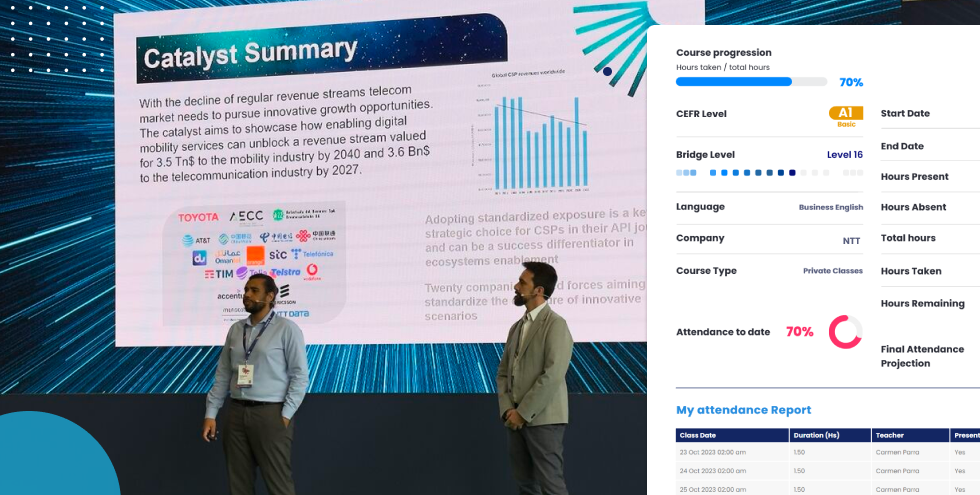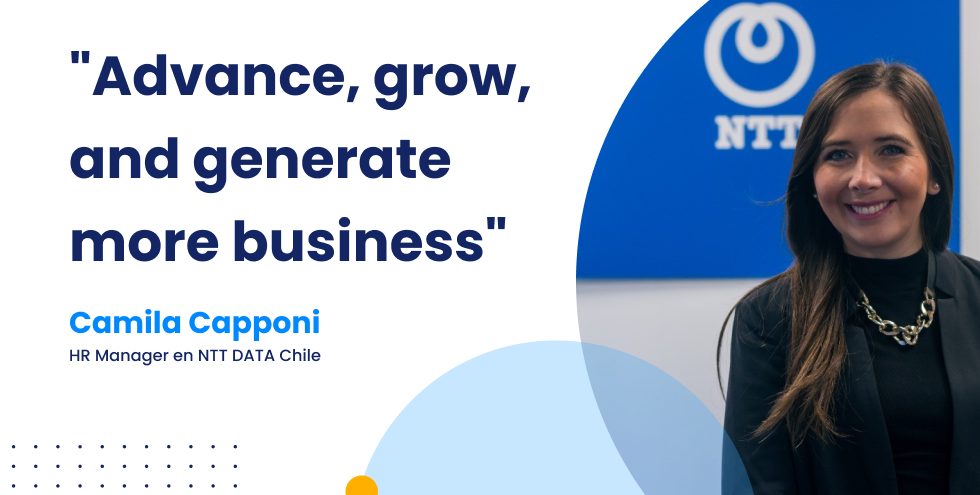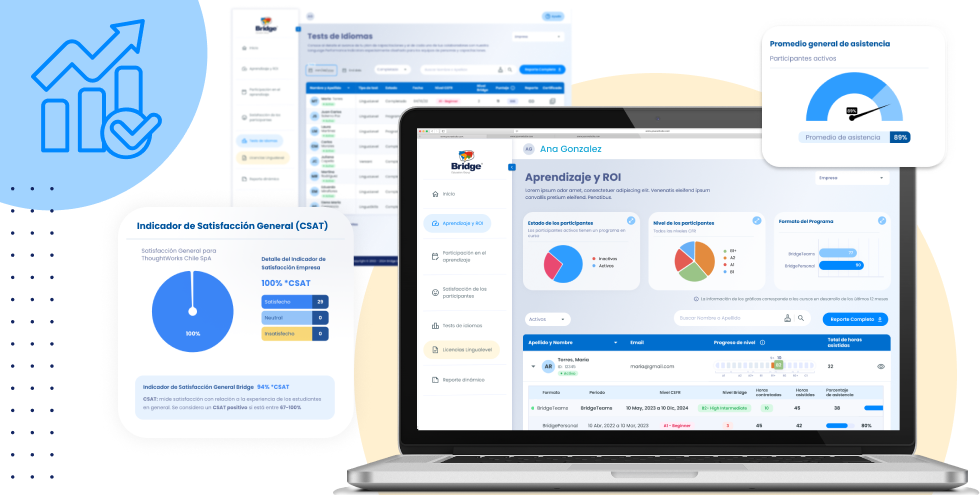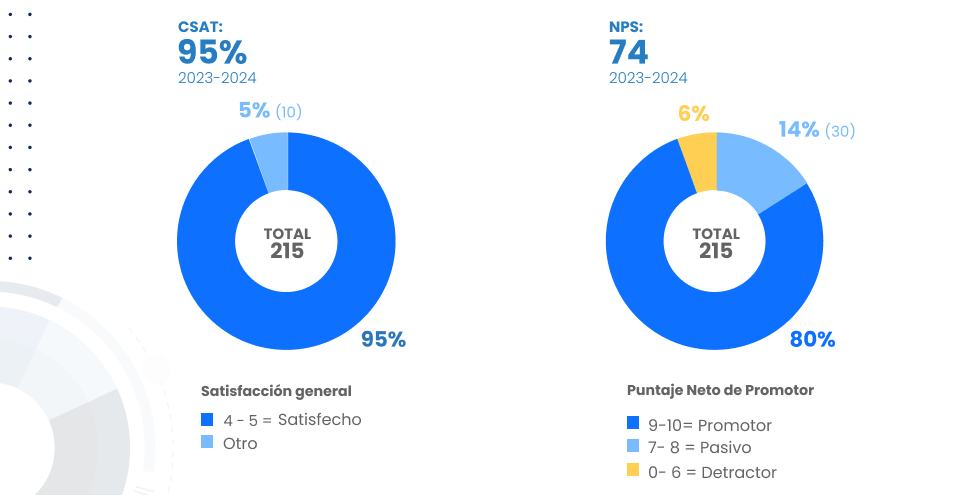An Interview with Camila Capponi, HR Manager at NTT DATA.
Recently, we had the opportunity to sit down with Camila Capponi, HR Manager at NTT DATA, to discuss how Bridge’s language training programs have benefitted the company, a global leader in technology. With over 50,000 professionals working across 57 countries, NTT is no stranger to the challenges of maintaining seamless communication across borders.
“Our interaction with the United States, Canada, Europe, and countries in Asia is constant,” Capponi shared, explaining the communication hurdles that come with such a vast global presence. “We have clients who request that we do business in other parts of the world.”
Capponi went on to describe how NTT’s diverse client base led them to focus on training their teams in both English and Portuguese, ensuring they could meet the demands of international clients. This was one of the company’s most pressing challenges: equipping their professionals with the language skills necessary for fast-paced, cross-border operations. Recognizing this need, NTT turned to Bridge’s corporate language training programs – a partnership that has now spanned several years.
Addressing Communication Gaps
During our conversation, Capponi reflected on the impact of multilingual skills, which have proven essential not only for fostering internal collaboration but also for upholding NTT’s high standards of client service. “We have a contract with the European Southern Observatory in Calama [Chile], and they informed us they have people from 47 different nationalities,” she noted. “They required engineers who were 100% bilingual.”

Capponi went on to explain that this wasn’t an isolated case. NTT’s professionals were often expected to work on significant projects that required fluency in more than one language. “Sometimes, we were unable to conduct business because we didn’t have language proficiency,” she admitted. “That’s why we began and have continued taking Bridge’s courses.”
This clear need for effective communication across languages led NTT to prioritize language training as a crucial part of their company’s growth strategy.
Are you interested in delving deeper into the different strategies that can be implemented to unlock an organization’s global potential? Read more in this article
Tailoring Training to Business Needs
When asked about the specific goals NTT aimed to achieve with Bridge’s language training programs, Capponi emphasized how important language proficiency was to create more business opportunities. As she shared, the objectives were “to advance, to progress, and to be able to do more business,” pointing to partnerships like the one with BHP, which requires team members to be bilingual in spoken communication.

One of the standout aspects of Bridge’s approach, according to Capponi, has been its flexibility in tailoring training programs to NTT’s specific operational needs. “The emphasis has always been on verbal communication,” she shared. “We want our teams to attend meetings with BHP Australia and understand everything. The main goal is for them to speak and understand.”
Throughout the interview, it became clear that Bridge’s approach wasn’t just about addressing immediate needs. Capponi pointed out that the partnership aligned perfectly with NTT’s long-term vision. “We didn’t want to be searching for these skills later on. We wanted to have them already developed in-house,” she said, highlighting the company’s proactive mindset.
Tangible Results and Continuous Progress
As the conversation continued, Capponi discussed the measurable progress NTT has seen from the language training programs. “The positive feedback is unmistakable,” she noted. “Leaders frequently comment on the improvements, and team members are now able to participate in more meetings.”

She also highlighted how NTT relies on the detailed reports provided by Bridge to track the progress of their participants and monitor the ongoing development of their language skills. This data-driven approach helps NTT measure success and ensure continuous improvement across their teams.
Are you interested in learning about emerging trends in language training? Read about how the future of workplace learning is transforming language proficiency in companies
Looking to the Future
At the interview’s conclusion, Capponi reflected on the future of NTT’s relationship with Bridge. “We’ve seen consistent progress and are very happy with Bridge,” she said. “Every time we request improvements, they’re implemented.”
It’s clear that ongoing language training remains an integral part of NTT’s growth strategy. By focusing on continuous upskilling, NTT ensures that its talent force remains prepared to meet the demands of an ever-evolving global market. Bridge’s tailored solutions continue to support NTT in achieving its long-term vision – building a future where their professionals are equipped to succeed in any environment.
Read the Full Case Study
Discover more about NTT’s journey and the measurable impact of Bridge’s language training programs by reading the case study.


